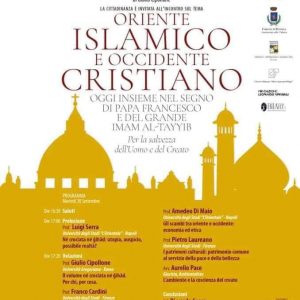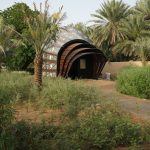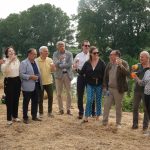BEYOND THE UNESCO HERITAGE: FROM THE LUCANIAN VILLAGES TO THE EAST
Did you know that some villages of Basilicata could be included in the Unesco Heritage, as some recognition “procedures” are underway? During the conference held at the Potenza building, it was learned from the intervention of Prof Pietro Laureano (University of Florence, specialist in the enhancement of cultural heritage) who, with his studies and collaborating with the Regional Director at branch, is highlighting the importance of Rabatana in Tursi, Armento, Tricarico, perhaps Lauria, certainly in Pietrapertosa.
The next day, in the second conference held in this municipality (also organized by the orientalist Luigi Serra, with the participation of the famous Prof Franco Cardini and others) the topic was explored.
In each of these municipalities the neighborhoods built by Muslim populations are still identifiable (not in all with equal clarity), whose name derives from an Arabic term that perhaps meant “steep”.
In fact, these were neighborhoods located in disjointed territories that are difficult to notice if not from a single side, now rich in references to urban planning and Muslim architecture (shelled corners, typical windows, natural caves, wooden artefacts).
In all likelihood, in the period of the Emirates in Bari and Taranto, these neighborhoods were founded by groups that used – between the Ionian and the Tyrrhenian – the valleys of our rivers as an alternative to the Strait itinerary.
For greater safety to the needs of environments because it responds to easier and safer ways?
The new communities (Berber?) Settled in these localities to act as support points for commercial caravans towards the Tyrrhenian localities and / or to escape religious conflicts (we are in the ninth century, well in advance of the Swabian Frederick II pax).
As strongly emphasized by Prof Cardini in the presentation of the Book by Prof Giulio Cipollone of the Gregorian University (Islamic East and Christian West), the crime of the current terrorist groups is entitled both to the Jiadche to all Islam, while the true history teaches that the conflict between the Mediterranean East and West was dramatized as an extension of the famous Crusades.
In reality, in the more than three centuries attributed to them, only 17 years will be wars, and the rest coincided with the development of intense commercial and cultural relations.
Our living settlements are testimonies; they benefited the cultural evolution of the indigenous people themselves because they developed their knowledge and integrated their traditions.
Both agricultural, introducing new products (saffron, oranges, etc.), and also rights: where the freedom of the peasants practiced in the East came to replace the serfdom that we survived beyond the dark ages of the Middle Ages!
As also attested by the linguistic persistence in our dialects, about which Prof. Serra often reminds us, there is therefore a universe of correlations and contaminations, which, by deepening the studies on Rabatana, can benefit the understanding between the two worlds.
For the Peace to which all peoples naturally aspire, and against which – by spreading terrorism – the extremism of fanatical minorities has raged! The value of the rediscovery and enhancement of the ancient testimonies that have intertwined the “Lucanity” thus acquires a universal value!
Therefore, great gratitude should be addressed to those who work to have them acquired in the Unesco Heritage: from the aforementioned Profs. Laureano, of Tricaric origins, and Serra, a native of Potentino (who has been involved in organizing these international conferences in Potenza and Pietrapertosa for months), to Dr. Minardi, Manager of Matera, who, beyond the misunderstandings and controversies addressed to her by -which rect in the Regional Council, continues in silence but in depth, to work for the cultural enhancement of Basilicata!











